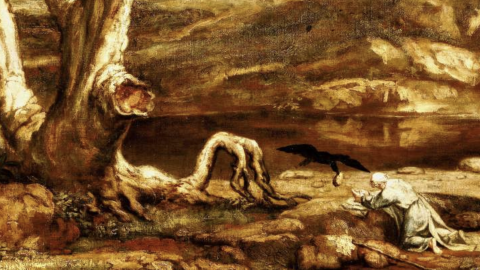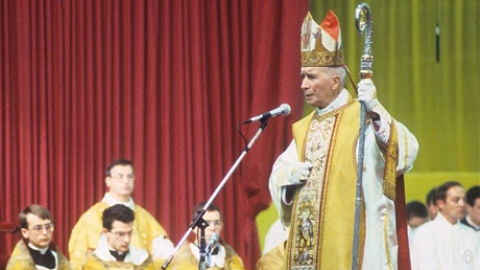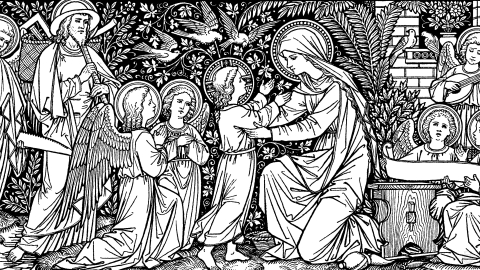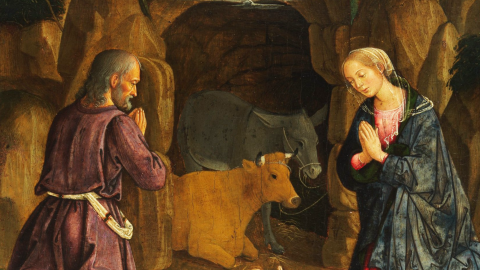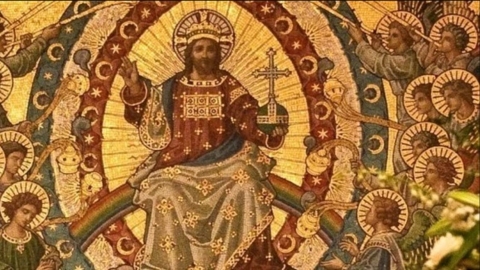Proposed Amendments to the Constitution

Fr Francis Gallagher
When he was devising the 1937 Constitution, Eamon de Valera consulted militantly orthodox priests like Fr John Charles Mac Quaid, CSSp, Fr Dennis Fahey, CSSp, and Fr Edward Cahill, SJ.
Although this Constitution did not establish a Catholic State, it contained many Catholic elements. The family was recognised as the basic unit of society. Marriage was upheld and divorce forbidden. It recognised that woman in the home provides a necessary support for society. All this discouraged anti-family legislation.
But more recently governments have weakened the Church’s influence by introducing various constitutional amendments. These required majority approval in referendums. The majority was usually obtained with little opposition from the bishops.
When announcing the forthcoming referendums the Minister for Integration (sic), Roderic O’Gorman, said that ‘a woman's place is wherever she wants it to be’; an interesting claim indeed!1 Anyway the Constitution does not say that a woman’s place is in the home.
Article 41.2.1 does say, ‘In particular, the State recognises that by her life within the home, woman gives to the State a support without which the common good cannot be achieved’. Article 42.2.2 says that the State shall endeavour to ensure that mothers need not work outside the home.
The 40th (‘Care’) Amendment proposes to replace Article 41.2 with Article 42B, which would read, ‘The State recognises that the provision of care, by members of a family to one another by reason of the bonds that exist among them, gives to Society a support without which the common good cannot be achieved, and shall strive to support such a provision.’ This ‘gender neutral’ newspeak indicates the State’s desire to usurp the roles of parents in the family. Will they eventually be replaced by government 'carers’? In 1951, the Irish bishops — foreseeing such developments — opposed the government’s proposed ’Mother and Child Scheme’. Will today’s Irish bishops oppose the proposed amendments? At present they remain silent!
Article 41.3.1. says, ‘The State pledges itself to guard with special care the institution of marriage, on which the family is founded,2 and to protect it against attack.' The 39th (‘Family’) amendment proposes the deletion of the words highlighted above. The words ‘whether founded on marriage or on other durable relationships’ would replace them. What are 'durable relationships’? Would they include somebody ‘married’ to a tree? Obviously this term is meant to include and recognise cohabitation and homosexual unions. It would also mean that migrants could bring to Ireland those with whom they already have a ‘durable relationship’ — including possibly several wives!
The Taoiseach, Leo Varadkar, said that a ‘Yes’ vote would continue to protect marriage and the family. But what do these words mean to him?3
‘The Constitution’, he added, ‘says that ‘families can only be based on marriage and the Government believes that this no longer reflects modern society.’4 But a constitution should uphold order rather than foster subversive changes. However order is not Varadker’s priority. Nor is it that of his EU handlers.
Recently our Superior General, Father Davide Pagliarani, reminded us that God 'created them male and female… man and woman… with very specific functions and roles’.5 But it seems that our wilfully blind government refuses to recognise these specific functions and roles. Yet the members of their own cabinet must surely have specified functions and roles.
Father Pagliarani goes on to say that there is order ‘because there are distinctions. It is like the order in the Blessed Trinity.’
The father is not the mother, nor the grandfather, nor the child, nor the son, nor the daughter. The father is the father and nobody else. Likewise, the mother is the mother and nobody else. In a family there is a naturally established order… which enables the family to achieve its purpose.
And there is also the distinction between God and man. As Archbishop Lefebvre so frequently insisted, we must return to Christ the King.
First and foremost, He is the King of intellects — of minds. He is the only one capable of enlightening us supernaturally and naturally.
He is also the King of hearts … of true charity… Everybody talks about love. However, when the notion of charity (of God) is lost… then you can easily understand how the word 'love' can acquire scandalous meanings… and what is not love is then called love.
Fr Cahill defined the family as ‘an assemblage of individuals dwelling in the same house under a common superior or head and united by ties founded on the natural law’.6 This cannot apply to cohabitating or homosexual couples.
The family’s foundation is the union of husband and wife. Both parents and children have duties and rights. Although the individual is its fundamental unit, the State is essentially a union of families. The family and the individual are prior to the State. So it cannot usurp the functions of parents.
Popes Pius XI and John Paul II taught that economic necessity should not force mothers to work outside the home thereby neglecting their domestic duties.7
Cahill states that the sexes are equal in all essential attributes. Both have liberty and responsibility. Both were redeemed by Our Lord and are destined for Heaven.
Romano Amerio describes Catholicism's elevation of women.8 They reached very high levels both culturally and in the government of religious orders during the Carolingian renaissance. And of course many have been canonised. The greatest of the saints is surely the Blessed Virgin Mary.
Literature, in the Middle Ages emphasised ‘courtly love’, which — despite some excesses — had a civilising influence. It had greater appeal to women than epic poetry with its emphasis on deeds of valour and warfare.
In the seventies, the ‘Women’s Liberation’ movement revived modern feminism. Its adherents encourage women to take on traditionally male roles assuming falsely that mens’ work is automatically superior. Amerio called it ‘masculinism’. Since Vatican II, feminism has influenced many in the Church.
We can contribute to the restoration of order in the Church, the State and the family by voting ‘No’ on 8 March. Even if the yes men (and women) win, the fight must go on. In the end, Christ the King and Our Lady of Fatima will surely triumph. But they do require our help.
- 1 www.rte.ie/news/politics/2023/1205/1420259-referendum/">
- 2My emphasis.
- 3 www.rte.ie/news/2024/0212/1431843-varadkar-referndum/">
- 4My emphasis.
- 5 www.fsspx.news/en/news/fiducia-supplicans-synodal-church-listening-worl…">
- 6Fr Edward Cahill, The Framework of a Christian State (Roman Catholic Books) pp 337; 422–442.
- 7 Casti Connubi (1930); Familiaris Consortio (1981).
- 8Romano Amerio, A Study of Changes in the Catholic Church in the XXth Century (Sarto House, 1996) pp 215–8.
Bibloigraphy
Romano Amerio, Iota Unum: A Study of Changes in the Catholic Church in the 20th Century (Sarto House, 1996).
Bunreacht na hEireann: Constitution of Ireland, January 2020.
Fr Edward Cahill, The Framework of a Christian State (Roman Catholic Books).
historyireland.com. 'The Catholic Church and the Writing of the 1937 Constitution'.
Read also: Referendums on Family and Care by Fr David Sherry, District Superior
